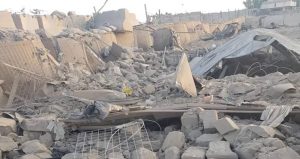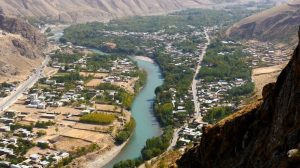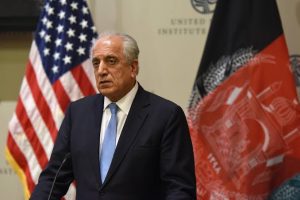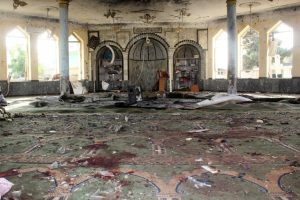The Israeli Regime’s Nuclear Weapons: Motives, Outcome

 KABUL: (Middle East Press) Nuclear weapons achievement by some countries indicates existence of specific reasons and motives behind it. The same fact is adoptable about the Israeli regime’s case. There are some factors that drive and incentivize the Israeli regime’s ambitions to store nuclear warheads.
KABUL: (Middle East Press) Nuclear weapons achievement by some countries indicates existence of specific reasons and motives behind it. The same fact is adoptable about the Israeli regime’s case. There are some factors that drive and incentivize the Israeli regime’s ambitions to store nuclear warheads.
Security Reasons
A feeling of insecurity is an overarching drive for the regime’s attainment of capability to develop nuclear weapons. The regime, due to its illegitimate establishment, has always been haunted by a sense that it is at risks coming from the region’s countries. The Israeli regime is not fully confident of its allies, so, it lives an ongoing perturbation, especially that it is like a disconnected island surrounded by its adversaries. Having these facts in mind, the Israeli regime, to guarantee its survival, has always eyed achieving weapons with a huge destructive power, thus nuclear weapons outstandingly find a place in Israeli regime’s strategy. The future enemies’ unpredictability and distrust in current allies push countries to seek equipment with such weapons as nukes. The former Israeli minister of interior security claims that “after WWII no country as Israel has been concerned about its national security.” There is an obvious reason behind this anxiety; the Israeli regime, after declaration of establishment, went through six big wars with its neighbors, approximately every decade a full-scale war. Moreover, in first Persian Gulf War in 1991, the Israeli regime was exposed to Iraqi missiles, as in summer 2006 war with Lebanon’s Hezbollah the regime’s invincibility claims were questioned. So, one reason is distrusting regional countries that urges Tel Aviv to stoke nuclear warheads to deter countries from launching individual or coalition attacks against its territories.
Military Reasons
Stockpiling nuclear weapons is mostly justified by the countries’ feeling of insecurity, possibility of any hostility by other countries, and their will to have deterrent power. Additionally, the nuclear weapons war potentials are highly considerable. The Israeli regime’s seeking of military supremacy to make up for demographic and geographic limitations and shortcomings push it to achieve nuclear weapons. In fact this motive is a crucial option for the regime to gain deterrent power through having nuclear weapons, a weapon that empowers the Israeli regime to address its weakness and lack of natural resources and shortage in military personnel. Tel Aviv officials have the idea that regarding the developments of the West Asia conditions the only way to survive is to attain an absolute weaponry, outstandingly nuclear, and ascendancy. The nuclear supremacy is very significant for the Israeli regime, to a point that the regime’s officials openly emphasize the importance of need for nuclear weapons. Morche Arenz claims that “the determining factors for dominating powers in the region are power and weapon, while public opinions are inconsiderable.” Generally, the Israeli regime’s security concept is tied to military strategy which, in turn, is related to its nuclear power.
Strategic Reasons
The Israeli regime’s national security is negatively affected by the regime’s geopolitical position. The Israeli regime’s coastal strip is too narrow, and in defense terms it has no strategic depth. 80% of the regime’s economic infrastructures are located in three cities of Quds (Jerusalem), Haifa and Tel Aviv, that is considered as a strategic weakness for the regime. Even occupying Arab territories could not help the Israeli regime compensate for its geographical weakness. During defferent wars, the regime’s cities and pivotal infrastructures have been targeted several times, as they exposed to Iraqi Scud and L39 missiles as well as were targeted by Hezbollah and other resistant groups’ missiles. So, the regime’s decision-makers find lack of strategic depth as a proper justification to stockpile nuclear weapons. A speedy nuclear response to any comprehensive war against the Israeli regime makes up the essence of the regime’s defensive doctrine. The Israeli regime’s military is afraid of engaging in longtime and erosive wars, a fear which is noticeable with a look to the regime’s geographical, demographic texture and its air, ground and navy forces’ make-up. The Israeli army has proved that maximum time for a steady and continuous battling potential is 20 days and a protracted war ends in the regime’s loss. Consequently, in the Israeli regime’s calculations the priority is to end any war in the shortest possible time and preferably with an outright victory. So, nuclear weapons have a crucial place in the regime’s strategies.
Political Reasons
Israeli regime’s national prestige and its position regionally and internationally present another excuse for achieving nuclear weapons by the regime. Having ambitions to attain military ascendancy over the regional countries, the regime presses more and more to reinforce its military potentials, an attempt met by the Western countries and the US’s generous support and military equipment’s provision. Ambitions to have supremacy and an upper hand over Arab countries and attaining leadership in the region and directing Islamic and Arab countries are the major political factors driving the Israeli regime to persistently build and renew its nuclear weapons. Seeking to gain prestige and flexing its muscles to win a better regional and global position are among motives pushing the regime to continuously build unconventional nuclear weapons. Nuclear weapons could pull the Israeli regime out of isolation and bring it credibility among the West Asian countries.
Impact of Israeli regime’s nuclear weapons
The Israeli regime enjoys a developed defensive structure, and, basically, militaristic policy is noticeable in almost all dimensions of the Israeli society life. The regime considerably pursues its objectives applying military force. At the time being, the Israeli regime is the only regional player which owns nuclear arsenal, as it has the technology and equipment for transferring of these massive destructive weapons. The Israeli regime’s mechanism for deploying and launching the nuclear weapons comes in three forms which includes ground missile launching, air bearing by military airplanes and submarine missile launch.
Since 1968 when the NPT (Treaty on the Non-Proliferation of Nuclear Weapons) was introduced and became operative, 189 countries welcomed the move, announcing readiness to submit to the treaty. However, the Israeli regime, supported by the US, refrained from joining the international convention. In 1969, the US government agreed not to press Tel Aviv to submit to and join the NPT on the condition that the regime would follow its nuclear weapons program in a completely secret way. The two sides kept the terms of the deal. Supplied backed by the US, the Israeli regime slipped from submission to NPT and freely pursued its military nuclear program, as it managed to become a major global military nuclear power.
The US has consistently advocated the Israeli regime in the international institutions. On September 22, 2006, the Muslim countries drafted a resolution in International Atomic Energy Agency (IAEA) condemning the Israeli regime’s military nuclear program, and requesting the regime to join NPT. While the resolution gained 89 yes votes, the US and the Israeli regime voted against it. So far, a variety resolutions in the UNSC and other UN submissive institutions have been drafted in condemnation of the regime’s nuclear weapons but they have functionally failed to be practical due to the US’s vetoes. Not part of the NPT yet, the Israeli regime, reportedly, is stockpiling nearly 200 nuclear warheads. In an attempt to avoid international criticism, the regime has followed a policy of ambiguity concerning its nuclear arsenals, which were built secretly with the help of the West.
Rejection of signing the NPT and its subsections revokes any international commitment of the Israeli regime to disclose all of its nuclear facilities and activities, and, consequently, the program remains closed to the UN inspections. The Tel Aviv regimes vague is demagogic, because the international community is well aware of the regime’s nuclear arsenals as well as its launching capabilities.
The proliferation of the nuclear weapons in the West Asia, while accompanied by some challenges including essential security issues and incomplete and unorganized structures and institutions, could lead to excessive fears and distrust, and end in insecurity in the region. Presently, excluding the Israeli regime, all of the West Asian countries are members of the NPT. This issue creates a sense of insecurity and tension among the region’s countries, a factor providing the need to press the Israeli regime to join the NPT.





